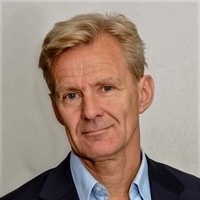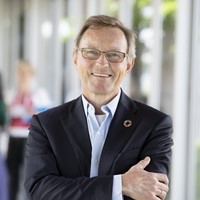




Ulrike Last
Inclusive Humanitarian Action Specialist
Organisation
Humanity & Inclusion
NGO
Speaker session
Soaring humanitarian needs and limited resources: Engaging emerging donors and new sources of financing
Auditorium
This session discusses a new “humanitarian narrative” in which humanitarian aid is framed as an investment and a common good. This narrative is framed by the ever-growing gap between resources for humanitarian assistance and humanitarian needs. . How new sources of funding (i.e. development and climate funding) can be mobilized will be discussed. In this context, the session will also debate how to get more concrete commitment from aid organizations to provide assistance in a more efficient and effective manner, working together much stronger and distributing tasks more systematically in line with their core strengths. Finally, the session will seek the support of minimum benchmarks for national humanitarian budgets with the objective of additional and more balanced humanitarian funding.

Ute Maria Klamert
Deputy Executive Director for Partnerships & Advocacy
Biography
Ute Klamert joined WFP as Deputy Executive Director for Partnerships and Advocacy in February 2019, leading the organization's engagement and resource mobilization activities with governments, United Nations agencies, private sector and other resource partners. In this role, expanding the partnerships and advocacy functional support to the WFP mandate, her priorities include diversification of funding sources by fostering engagement with IFIs and by creating an enabling organisational environment for specific domains such as thematic funding and climate action financing. Ms. Klamert also drives corporate communications and advocacy efforts to further WFP's mission of 'saving lives, changing lives'. An organisational enabling environment includes development of systems and guidance but also of capacities. Ms. Klamert is committed to investing in the skills and capabilities of her staff as well as increasing diversity across the Partnerships and Advocacy Department.
Organisation
World Food Programme
Other
Speaker session
Soaring humanitarian needs and limited resources: Engaging emerging donors and new sources of financing
Auditorium
This session discusses a new “humanitarian narrative” in which humanitarian aid is framed as an investment and a common good. This narrative is framed by the ever-growing gap between resources for humanitarian assistance and humanitarian needs. . How new sources of funding (i.e. development and climate funding) can be mobilized will be discussed. In this context, the session will also debate how to get more concrete commitment from aid organizations to provide assistance in a more efficient and effective manner, working together much stronger and distributing tasks more systematically in line with their core strengths. Finally, the session will seek the support of minimum benchmarks for national humanitarian budgets with the objective of additional and more balanced humanitarian funding.

Veronica Fernandes
Journalist
Biography
Veronica Fernandes is a correspondent and anchor on the foreign news desk of Rainews24. As well as presenting the news, she is the host of Checkpoint, the channel's in-depth programme covering international policy. She recently covered the war in Ukraine, the criminal destruction of the Amazon forest and the US Midterm Elections.
Mother of two, in her spare time, she enjoys running and seeks inspiration by reading a book a week.
Organisation
Rainews24
Speaker session
Soaring humanitarian needs and limited resources: Engaging emerging donors and new sources of financing
Auditorium
This session discusses a new “humanitarian narrative” in which humanitarian aid is framed as an investment and a common good. This narrative is framed by the ever-growing gap between resources for humanitarian assistance and humanitarian needs. . How new sources of funding (i.e. development and climate funding) can be mobilized will be discussed. In this context, the session will also debate how to get more concrete commitment from aid organizations to provide assistance in a more efficient and effective manner, working together much stronger and distributing tasks more systematically in line with their core strengths. Finally, the session will seek the support of minimum benchmarks for national humanitarian budgets with the objective of additional and more balanced humanitarian funding.






